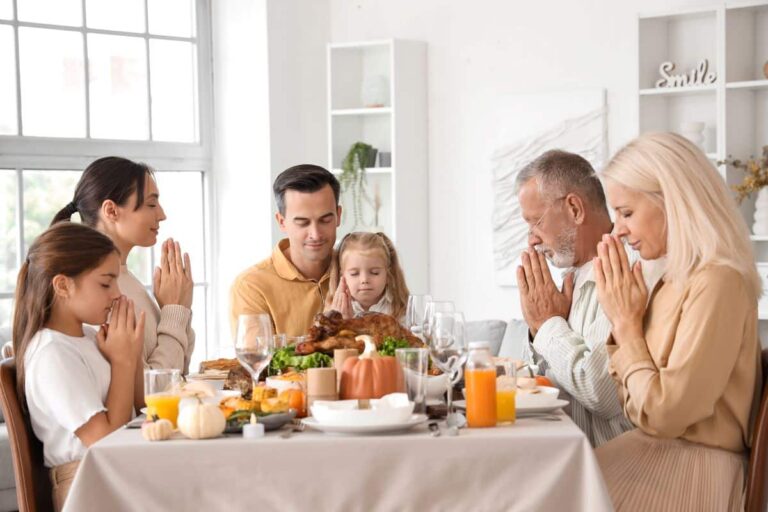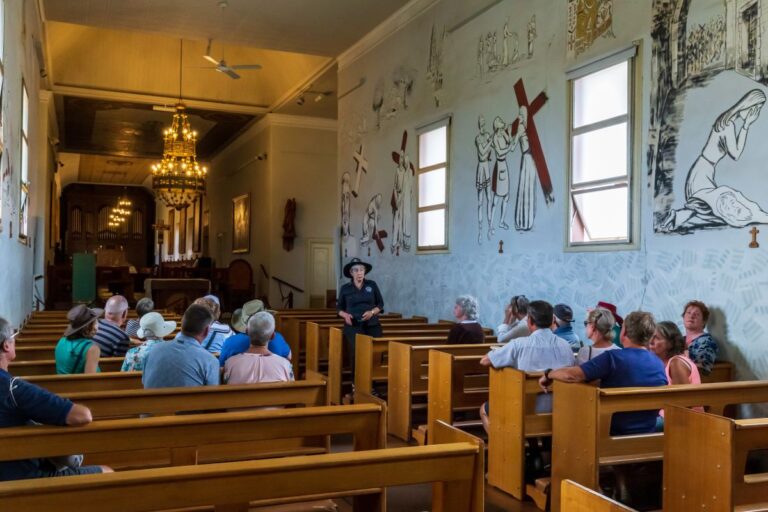Religious Taboos That Probably Shouldn’t Be Taboos at All
You’ve encountered them—rules and prohibitions in various religions that might make you stop and think, “Why is this even a thing?” Religious taboos have shaped societies for centuries, guiding behavior and reinforcing beliefs. But as our world evolves, it’s worth asking: are some of these taboos still relevant, or have they become outdated restrictions that no longer serve a meaningful purpose?
A Tradition That’s Stuck Around

Religious taboos have been ingrained in many cultures for generations. They were created to uphold moral standards and community cohesion. But just because these rules have been around for a long time, does that mean they still hold the same value today? Are we adhering to them out of genuine belief, or simply because “that’s the way it’s always been”?
Questioning Authority: The Fear of Doubt

In many religious contexts, questioning the teachings or authority figures is frowned upon, if not outright forbidden. This taboo exists to protect the sanctity of the faith, but it also stifles intellectual and spiritual growth. Shouldn’t the act of questioning be seen as a path to deeper understanding rather than a threat to faith?
Sexuality and Purity: A Narrow View

Religions often impose strict rules on sexual behavior, framing them as essential to moral living. These taboos, which include prohibitions on premarital sex, contraception, and homosexuality, were established in a different era, often for social or reproductive reasons. Today, they can create unnecessary guilt and shame, particularly when they conflict with personal identity and modern values. Isn’t it time to focus on respect and consent rather than rigid sexual norms?
Interfaith Relationships: Breaking Down Barriers

Many religions discourage or even forbid relationships between people of different faiths, fearing it might dilute religious identity or cause cultural conflict. But love doesn’t always respect these boundaries. Interfaith relationships can be a source of cultural exchange and mutual understanding, rather than something to be feared. Shouldn’t we celebrate love, regardless of religious background?
Women’s Roles: Time for Change

In numerous religions, women are assigned specific roles, often centered around the home and family. These taboos limit their opportunities for leadership and full participation in religious life. As society progresses, these restrictions feel increasingly outdated. Women should be free to take on any role they are drawn to, without being held back by traditions that no longer reflect modern realities.
Dietary Restrictions: A Matter of Choice

Religious dietary laws have deep cultural and historical roots, but in today’s world, they can be challenging to maintain. Whether it’s avoiding pork, beef, or other forbidden foods, these restrictions were often based on health concerns or symbolic meanings from ancient times. With modern food safety and global access to diverse diets, shouldn’t dietary choices be more about personal health and ethical considerations?
Sacred Days and Rituals: Flexibility in Faith

Observing sacred days and rituals is a key part of many religious traditions, but strict adherence can sometimes be impractical. Whether it’s fasting, attending services, or abstaining from work, these practices can clash with the demands of modern life. Shouldn’t rituals be viewed as personal spiritual practices rather than obligations that cause stress?
The Stigma Around Mental Health: Breaking the Silence

In some religious communities, mental health struggles are seen as a sign of weak faith or spiritual failing. This stigma can prevent people from seeking the help they need. Mental health should be treated with the same importance as physical health, with support encouraged alongside spiritual practices. Isn’t it time to break the taboo and promote holistic well-being?
Dressing Modestly: A Personal Decision

Modesty in dress is a common expectation in many religions, often with strict guidelines. While modesty can be an expression of faith, these rules can lead to the policing of individuals’ bodies, particularly women’s. Modesty should be a personal choice, reflective of one’s beliefs, rather than an imposed standard that can cause shame and judgment.
Interpreting Texts Literally: A Call for Context

Religious texts are often taken literally, leading to taboos that may seem out of place in today’s world. What might have made sense in an ancient context doesn’t always translate well to modern life. Interpreting these texts with an understanding of the historical and cultural context can lead to a more compassionate and relevant practice of faith.
Are These Taboos Still Unifying?

Supporters of religious taboos argue that they maintain order and moral integrity within a faith community. But as societies become more diverse and inclusive, these taboos can sometimes feel more divisive than unifying. Is it possible that holding onto these restrictions highlights our differences more than brings us together?
Exploring Alternatives

Some religious communities are beginning to rethink and reinterpret traditional taboos in a way that aligns more with modern values. From more inclusive attitudes towards sexuality and gender roles to a flexible approach to rituals, these changes aim to honor the spirit of the faith while embracing contemporary realities.
Generational Shifts in Perspective

Younger generations often view religious taboos differently from their elders. For many millennials and Gen Zers, these rules can feel like relics of the past—more about maintaining control than fostering true spiritual connection. This generational shift could be driving the broader debate over the relevance of certain taboos in modern religious practice.
How Other Cultures Do It

Religious taboos aren’t unique to any one faith or culture, but attitudes toward them vary widely around the world. Some cultures have begun to relax or reinterpret these rules in light of modern values, while others hold fast to tradition. Looking at how different societies handle religious taboos can offer insights into whether some of these restrictions still make sense today.
What’s Next for Religious Taboos?

As our world continues to evolve, the future of religious taboos is uncertain. Will they remain a central part of religious practice, or will they fade away as outdated restrictions? The conversation is far from over, and whatever happens next will say a lot about where faith communities are headed.
Millennials Turn the Tide on Climate Beliefs

Millennials have often been labeled as apathetic, but when it comes to climate change, they are leading the charge. How did this generation go from skepticism to becoming fervent advocates for the planet? Millennials Turn the Tide on Climate Beliefs
Forgotten Warriors: 20 Military Units History Erased

Throughout American military history, numerous units have demonstrated extraordinary bravery and made significant sacrifices, yet many have not received the recognition they deserve. This article shines a light on these overlooked groups whose valiant efforts are an integral part of our nation’s heritage. Forgotten Warriors: 20 Military Units History Erased
Why You Shouldn’t Live in a Retirement Community

Think you’re ready to settle into a retirement community? Before making this significant life decision, consider how it might impact your independence, finances, and social life in ways you hadn’t anticipated. Why You Shouldn’t Live in a Retirement Community
Featured Image Credit: Shutterstock / Gorodenkoff.
The content of this article is for informational purposes only and does not constitute or replace professional advice.
The images used are for illustrative purposes only and may not represent the actual people or places mentioned in the article.
For transparency, this content was partly developed with AI assistance and carefully curated by an experienced editor to be informative and ensure accuracy.






